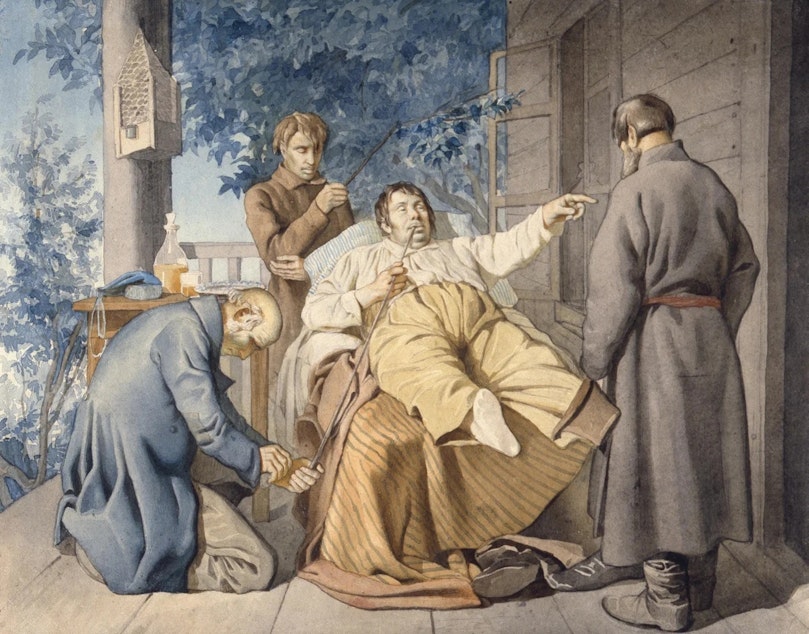Words In Review: 'Landlord' or 'housing provider'?

Seattle has restricted the power of the landlord, but we’re still using that medieval term. Is our housing system feudal?
Last week, a federal court ruled that Seattle landlords can ask applicants about criminal history, but cannot deny housing based solely on a criminal record. This court case involved restrictions the city has placed on landlords to curb their power over tenants. The city has also required landlords to rent to the first qualified candidate and to give more notice of big rent increases.
But one thing the city has not touched is the word “landlord.”
The word comes from the feudal system of medieval Britain. It suggests domination and exploitation, and some Seattle landlords would like to ban the term. Ayda Cater owns one rental house. She told KUOW housing reporter Joshua McNichols that “landlord” feels antiquated and has a negative connotation.
“I liken the housing market to a food market, a grocery store,” Cater says. “Would you call your grocer your 'foodlord'? I sure wouldn't. If people are hungry -- similar to trying to find housing -- the natural reaction would be to help the grocery store provide more food, maybe provide it more cheaply, maybe open up more grocery stores, build more. It's so interesting to me that we don't approach housing the same way; instead, we regulate them so much that they get pushed out of the market. It's like closing grocery stores when people are starving. It is the most bizarre thing to me.”
Joshua pointed out that if we don’t like a grocery store’s prices, we can easily switch to another. It’s difficult to change housing providers like that, especially in a housing shortage. Perhaps, that power imbalance is what has sustained the term “landlord”?
Cater agreed that “there is a power imbalance because the roof over your head is crucial,” but she says she’s not living like a lord -- she’s living with risk. She has to pay her mortgage, taxes, insurance, and repairs.
Some small landlords told KUOW they prefer the term “housing provider,” especially for someone who only owns one or two homes. But Edmund Witter, Managing Attorney of the King County Housing Justice Project, says even small landlords are profiting from the same exploitative system as the large ones.
“Just the fact that you own property is a privilege in our society,” Witter says. “It's a large privilege that is shared among racial lines and also divided by racial lines. So, while I understand they maybe don't feel like the feudal lords of 500-700 years ago, they still are a privileged class and that does need to be recognized. Owning property, having the privilege of investment income and investment properties, that’s kind of the ‘lord’ of our era.”
Witter says ditching the term “landlord” is a political and public opinion strategy. He also thinks it shows Americans’ discomfort with class. While the British are more at ease with hierarchy, we prefer to think of ourselves as egalitarian and meritocratic. “We don't want to see ourselves as being lords of the land, because it suggests that we're wealthy,” Witter says. “It suggests that people might be right to be resentful of us. So I do think class is coming in here -- the American modesty towards wealth and class, and the failure to acknowledge it or own up to it.”
The state of Ohio considered officially replacing “landlord” with “housing provider” in government documents but has not done it; nor has Washington. (KUOW’s policy is to say “landlord” when we mean a private, for-profit home lessor, because it’s the most widely understood term.)
Let us know what you think of “landlord,” or any other intriguing word you come across in local news and culture. Email “Words In Review” host Bill Radke at bradke@kuow.org.
(KUOW’s Joshua McNichols contributed to this story.)




